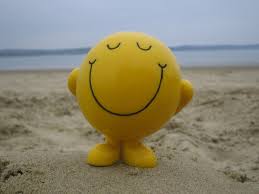happy
推荐文章

adj. 幸福的;高兴的;巧妙的
n. (Happy)人名;(英、瑞典、喀)哈皮
adj.
幸福的;快乐的;巧妙的;〈口〉有点醉意的
双语释义
adj.(形容词)幸福的,愉快的 feeling or expressing pleasure, contentment, satisfaction, etc.
快乐的 full of joy
[A]幸运的,运气好的 fortunate; lucky
恰当的,巧妙的 (of words, ideas, behaviour, etc.) well suited to the situation; pleasing
英英释义
happy[ 'hæpi ]
adj.
enjoying or showing or marked by joy or pleasure or good fortune
"a happy smile"; "spent many happy days on the beach"; "a happy marriage"
marked by good fortune
"a happy outcome"
同义词:felicitous
eagerly disposed to act or to be of service
同义词:glad
well expressed and to the point
"a happy turn of phrase"
同义词:well-chosen
词汇搭配
用作形容词 (adj.)
~+名词
happy chance碰巧
happy day幸福的日子
happy family幸福的家庭
happy land乐土
happy translation恰当的翻译
happy words措词巧妙
副词+~
most happy十分高兴
perfectly happy非常高兴
so happy如此高兴
supremely happy极为高兴
very happy很高兴
~+动词不定式
happy to help乐意帮助
happy to meet乐意会见
happy to receive高兴地接受
happy to see高兴地看到
happy to work工作愉快
~+介词
happy about sth因某事而高兴
happy at hearing sth听到…而感到高兴
happy in doing good乐于行善
happy in one's expressions巧于辞令
happy in that work善于做那项工作
happy over sth因某事而高兴
happy with sb与某人相处融洽
词组短语
happy new year新年快乐;恭贺新禧
happy birthday生日快乐
happy life幸福生活;快乐的人生
happy family快乐家庭;幸福之家
happy every day快乐每一天
wish you happy祝你快乐
happy time欢乐时光
happy birthday to you生日快乐;祝你生日快乐
happy everyday快乐每一天(祝福语)
be happy with与…在一起很高兴;对…感到满意
happy person幸福的人
happy marriage美满的婚姻
happy holiday快乐的节日;愉快的假期
happy valentine's day情人节快乐
more than happy非常高兴;很乐意
happy childhood快乐的童年
happy home快乐家庭
happy valley欢乐谷(游乐场);跑马地(香港一高级住宅区)
happy hour n. 快乐时间;减价供应饮料等的时间(酒吧间术语)
happy spring festival春节快乐
同近义词辨析
glad, happyglad高兴,只能做表语
happy 高兴,幸福,定表均可, a happy girl
joyful, glad, delightful, merry, gay, happy, agreeable, jolly, nice, pleasant, cheerful这组词都有“愉快的,高兴的”的意思,其区别是:
joyful语气较强,强调心情或感情上的欣喜。
glad最普通用词,语气较弱,表示礼貌的惯用语。指乐于做某事或因某事而感到满足,常表愉快的心情。
delightful指能带来强烈的快乐,激起愉快的情感,用于非常愉快的场合。
merry指精神情绪的暂时高涨,表示欢乐、愉快的心境或情景,侧重充满欢笑声和乐趣。
gay侧重无忧无虑、精神昂扬、充满生命的快乐。
happy侧重感到满足、幸福或高兴。
agreeable指与感受者的愿望、情趣或受好等和谐一致而带来的心情上的快意。
jolly通俗用词,多指充满快乐与喜悦的神情。
nice语气较温和,泛指任何愉快或满意的感觉。
pleasant侧重给人以“赏心悦目”或“愉快的,宜人的”感受。
cheerful多指因内心的愉快而表现出兴高采烈,是强调而自然的感情流露。
favourable, lucky, happy, fortunate这组词都有“有利的,好运的,顺利的”的意思,其区别是:
favourable普通用词,指预示从良好的结果中能得到明显好处,有利于达到目的。
lucky多指偶然机遇中的有利或幸运情况。
happy侧重指不是通过某种机会,而是凭借鉴另和选择手段而得到利益与好处。有时也指偶然得到的好处,但强调的是有利的结果。
fortunate指目前已存在的成功或有利情况,或指因好运或机会带来的成功和喜悦。
双语例句
用作形容词(adj.)
I am so happy to hear of your engagement.
听到你订婚我很高兴。
This has been the happiest day of my life.
这是我生活中最快乐的一天。
I wish you a very happy future.
我祝你有非常幸福的未来。
They had a very happy marriage.
他们有个幸福美满的婚姻。
He is in the happy position of never having to worry about money.
他真有福气,从来不需要为金钱之事操心。
Our team would be happy to answer your questions.
我们团队很乐意解答您的所有疑问。
权威例句
Very happy people.Very happy people.
The funds, friends, and faith of happy people.
Endothelial cell-cell junctions: happy together.
Happy People Live Longer: Subjective Well‐Being Contributes to Health and Longevity
The happy personality: a meta-analysis of 137 personality traits and subjective well-being.
Do we really know what makes us happy? A review of the economic literature on the factors associated with subjective well-being
A differential neural response in the human amygdala to fearful and happy facial expressions
Influence of extraversion and neuroticism on subjective well-being: happy and unhappy people.
A differential pattern of neural response toward sad versus happy facial expressions in major depressive disorder
happy
happy: [14] The Old and Middle English word for ‘happy’ was what in modern English has become silly. This began to change its meaning around the 15th century, and obviously an opportunity began to open up for an adjective expressing ‘contentment’ (as opposed to positive ‘joy’, denoted then by glad, fain, and joyful). The gap was partly filled by a weakening in the meaning of glad, but waiting in the wings was happy, a derivative of the noun hap ‘chance, luck’ (source of happen), which when it was coined in the 14th century meant ‘lucky, fortunate, prosperous’.The main modern sense ‘highly pleased or contented’ developed in the early 16th century.=> happen
happy (adj.)
late 14c., "lucky, favored by fortune, being in advantageous circumstances, prosperous;" of events, "turning out well," from hap (n.) "chance, fortune" + -y (2). Sense of "very glad" first recorded late 14c. Meaning "greatly pleased and content" is from 1520s. Old English had eadig (from ead "wealth, riches") and gesælig, which has become silly. Old English bliðe "happy" survives as blithe. From Greek to Irish, a great majority of the European words for "happy" at first meant "lucky." An exception is Welsh, where the word used first meant "wise." Happy medium "the golden mean" is from 1702. Happy ending in the literary sense recorded from 1756. Happy as a clam (1630s) was originally happy as a clam in the mud at high tide, when it can't be dug up and eaten. Happy hunting ground, the reputed Indian paradise, is attested from 1840, American English. Happy day for "wedding day" is by 1739; happy hour for "early evening period of discount drinks and free hors-d'oeuvres at a bar" is by 1961, said to be 1950s. Related: Happier; happiest.
happy (adv.)
late 14c., from happy (adj.).
1. I wished her a happy birthday.
我祝她生日快乐。
《牛津词典》
2. The news made him very happy.
这则消息使他非常高兴。
《牛津词典》
3. You don't look very happy today.
你今天好像不太高兴。
《牛津词典》
4. Happy birthday, sweetheart.
生日快乐,亲爱的。
《柯林斯英汉双解大词典》
5. "Happy Easter," he yelled.
“复活节快乐,”他喊道。
《柯林斯英汉双解大词典》
6. I've seldom felt so happy.
我很少感到过这么快乐了。
《柯林斯英汉双解大词典》
7. She had a happy childhood.
她有一个幸福的童年。
《牛津词典》
8. At least they died happy.
至少他们死时很幸福。
《牛津词典》
9. Marina was a confident, happy child.
玛丽娜是个自信、快乐的孩子。
《柯林斯英汉双解大词典》
10. He was a happy, good-tempered child.
他是个快乐而且脾气很好的孩子。
《柯林斯英汉双解大词典》
11. We're blissfully happy.
我们非常幸福快乐。
《柯林斯英汉双解大词典》
12. I'm quite happy to wait for you here.
我非常高兴在此等候您。
《牛津词典》
13. The bald truth is he's just not happy.
明摆着的事实是他就是不高兴。
《柯林斯英汉双解大词典》
14. I think he's happy. It's hard to tell.
我想他是幸福的。这很难说。
《牛津词典》
15. 'Happiness' is a derivative of 'happy'.
happiness是happy的派生词。
《牛津词典》
16. A happy parent makes for a happy child.
幸福的家长造就幸福的孩子。
《柯林斯英汉双解大词典》
17. The cake had 'Happy Birthday' piped on it.
蛋糕上裱了“生日快乐”的字样。
《牛津词典》
18. The happy couple were toasted in champagne.
人们举起香槟酒为这对幸福的伉俪干杯。
《牛津词典》
19. I wasn't feeling especially happy that day.
那天我并不十分高兴。
《牛津词典》
20. You seem happy.
你好像挺高兴。
《牛津词典》
21. Outwardly, the couple seemed perfectly happy.
表面上看,这对夫妇似乎幸福美满。
《牛津词典》
22. Let's sing 'Happy Birthday'. All together now!
咱们来唱“生日快乐”。现在一起唱!
《牛津词典》
23. Dora returned from her honeymoon deliriously happy.
多拉度蜜月回来,无比幸福。
《柯林斯英汉双解大词典》
24. He looked happy and carefree.
他看起来轻松愉快。
《牛津词典》
25. We are both ecstatically happy.
我们俩都欣喜若狂。
《柯林斯英汉双解大词典》
26. The story has a happy ending.
故事的结局很圆满。
《牛津词典》
27. She wasn't a happy bunny at all.
她一点儿都不满意。
《牛津词典》
28. It had always been a happy place.
这里从前一直是个令人愉快的地方。
《柯林斯英汉双解大词典》
29. Are you happy with that arrangement?
你对这一安排感到满意吗?
《牛津词典》
30. Are you happy with that arrangement?
你对这一安排感到满意吗?
《牛津词典》
